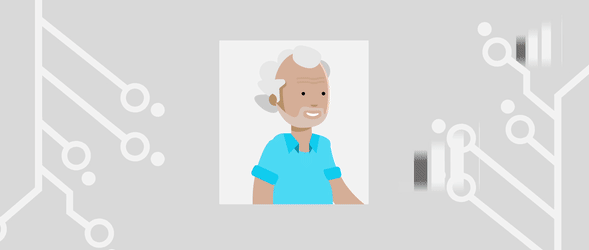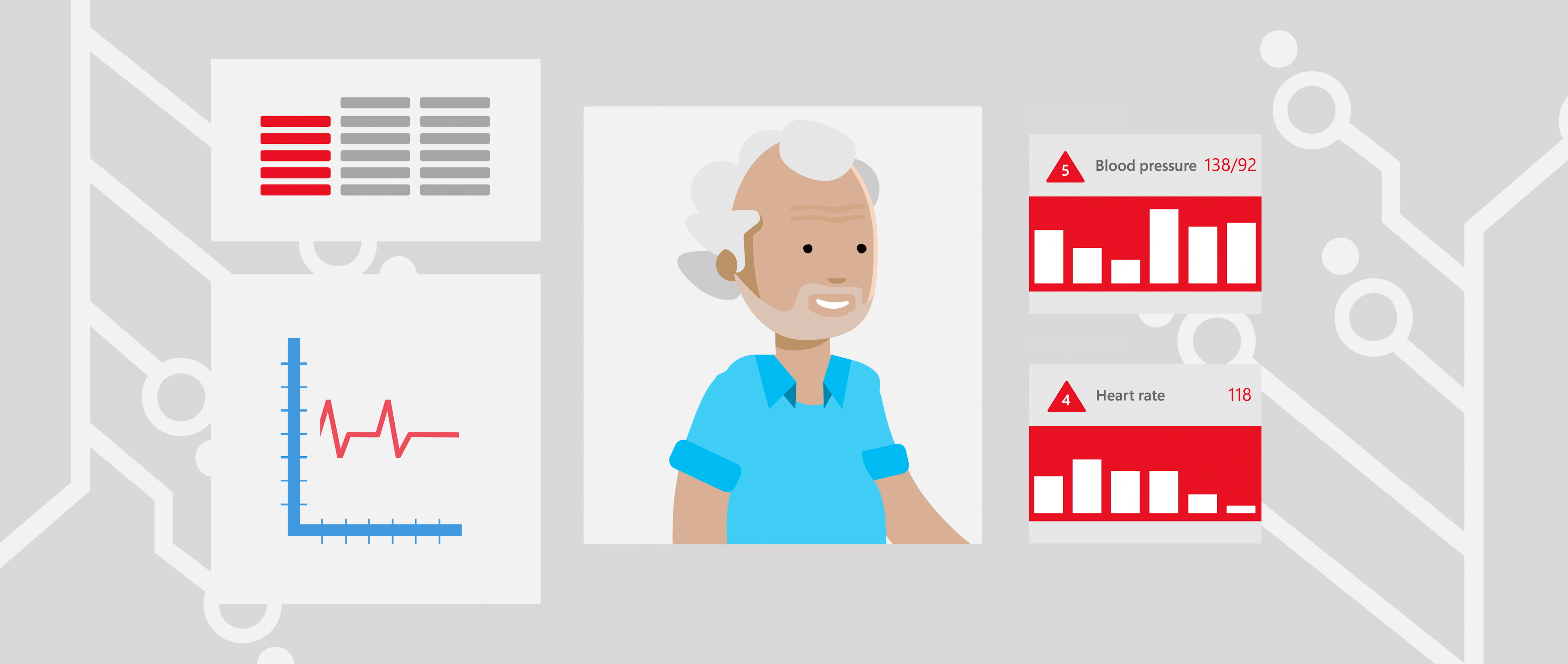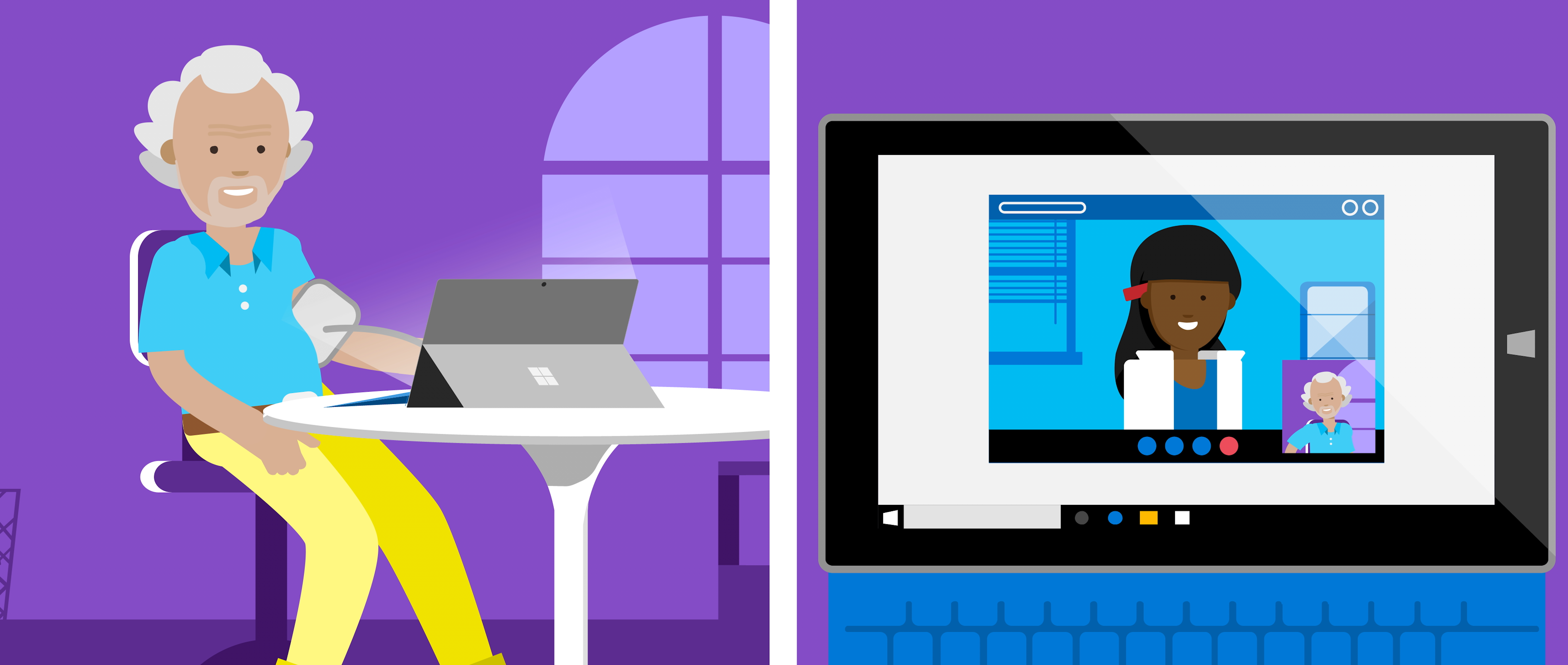Europe needs a health check. We have rapid population growth, by almost two million a year, combined with an aging population – an increase in over 65s by 2.3% over the last ten years (Eurostat). Our healthcare services are under strain like never before, as demand rapidly outstrips supply.
Accessing the right medical care is a global challenge. High demand in urban areas makes it difficult to get timely appointments, while rural citizens are forced to travel sometimes great distances to their closest doctor.
Patients only interact with care providers when they’re really sick, meaning everyone is reactive. But what if we could get proactive, ensuring patients get helpful, personalised advice when they need it most?
With clever applications of technology, healthcare services can be digitally transformed, ensuring everyone can access the care they need.
Making the most of data
There is now so much technology in our hospitals and doctors’ offices that the amount of patient data collected has sky-rocketed. Using artificial intelligence and clinical and operational analytics technology like Microsoft’s Power BI, physicians and clinicians can gain better insights from the mountains of data they collect, and turn it into actions that can improve patient outcomes.
DevScope, a Microsoft partner, has developed such a solution for the São João Hospital Center, the largest hospital in Portugal. HVITAL is an advanced clinical analytics platform, able to predict up to 30% of ICU care admissions, seven days in advance.
The solution securely correlates massive amounts of patient data in real time, including vital signs, lab results, and even unstructured data from clinical diaries. Machine learning algorithms then use this data to identify patients at risk of clinical deterioration and alert their doctors immediately, before it becomes dangerous.
As well as improving care for individuals, the digital transformation we are experiencing in health is also improving the health of our communities at large.
While respecting privacy, medical professionals can track health trends, demographics, social events, and other factors that may influence demands on their healthcare services. Armed with the knowledge of when, where, and what care may be required, providers can optimize their resource planning and ensure the right staff are available when needed.
Engaging patients beyond the hospital
This digital transformation in health can also make it easier for patients needing virtual or outpatient care to lead healthier lives. With emerging virtual health platforms, patients can manage their healthcare without having to step foot in a doctor’s office.
Using apps, chat-bots and tools like Skype, patients can arrange appointments and even resolve medical issues remotely. The technology allows them to instantly connect to a medical professional, to whom they can grant access to their personal medical record, securely via the cloud.
One example is Nordic Health Innovation (NHI), which offers virtual care rooms for citizens in remote areas of Sweden, equipped with smart devices to run simple tests and connect patients virtually with doctors and specialists.
This is especially life changing for less mobile elderly people with medical issues such as diabetes, which require regular check-ups. The Microsoft Azure-based platform allows NHI to offer rural citizens the same high-quality care as those in Sweden’s cities and towns, without requiring them to travel outside their community.
At HIMSS this week, Microsoft demonstrated how our healthcare partners can use bots to help their patients find the health information they need via their web browser or apps at home.
Through simple questions and answers, bots can provide a diagnosis and recommendation for if/when patients should seek further treatment. Simple but reliable tools like these can relieve pressure on doctor’s offices and reduce unnecessary worry for patients.
Empowering care teams
To provide the best care, it’s essential that medical professionals have a 360-view of their patients. As patients build their own medical records, they amalgamate digitalised data from hospitals, doctors, and all their care providers.
To access this data, medical professionals need smart, portable devices that can be used from anywhere, at any time – whether on rounds at the hospital or visiting patients at home.
With this technology, care teams are empowered to collaborate, communicate, and consult with one another, so they can coordinate treatment plans and deliver better care.
Further afield, an empowered care team can deliver the best care in challenging conditions. Spanish NGO Fundación Acción Geoda provides check-ups for pregnant women in rural Morocco, using just a portable ultrasound and Surface device.
These ultrasound check-ups are essential for the health of mother and baby, but have been impossible to provide in places like these where access to technology is limited. But now, with powerful portable technology, we can now provide truly life-changing care even in the most remote areas of the world.
The way forward
Technology will revolutionise Europe’s healthcare systems. As our society changes and pressures increase, care providers who embrace digital technology will be the ones that offer the best care. With technology, we can provide high-quality care to everyone, regardless of their circumstances. In doing so, we will improve the quality of life for all.
To learn more about empowering the digital transformation of health, click here.
To learn about the importance of cloud security in healthcare, click here.








